| "To every American, this is the moment to protect yourself and your family." -- Dr. Deborah Birx's message to the public on individual responsibility during COVID-19
Welcome to the "Face the Nation" Five at Five newsletter. Scroll down for your five takeaways from today's broadcast with moderator Margaret Brennan on CBS. Did someone forward you this? Sign-up at cbsnews.com/email. 1. Assume the worst, hope for the best: Birx on Thanksgiving 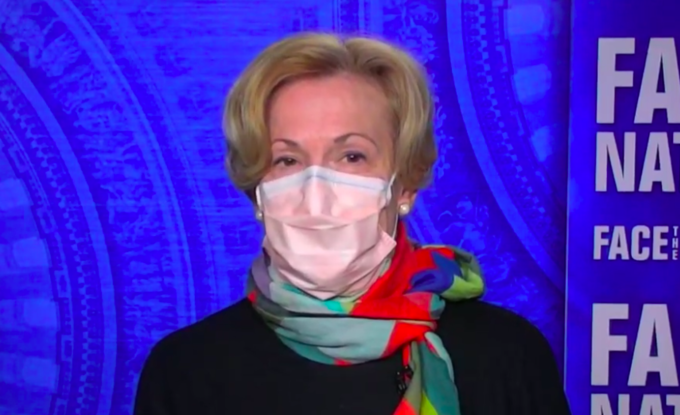 Dr. Deborah Birx, the coordinator of the White House Coronavirus Task Force, warned Sunday that Americans who traveled for the Thanksgiving holiday and attended large gatherings should assume they were infected with the coronavirus and get tested within the next few days. What we asked: What do Americans need to be prepared for? What Birx said: "We know people may have made mistakes over the Thanksgiving time period. If you're young and you gathered, you need to be tested about five to 10 days later. But you need to assume that you're infected and not go near your grandparents and aunts and others without a mask." Why it matters: In the run-up to Thanksgiving, public health experts urged Americans to forego large family celebrations amid the latest surge of coronavirus infections. There have been more than 13.2 million confirmed cases of the coronavirus in the U.S., and more than 266,000 Americans have died from COVID-19. 2. Mayors make case for mask mandates 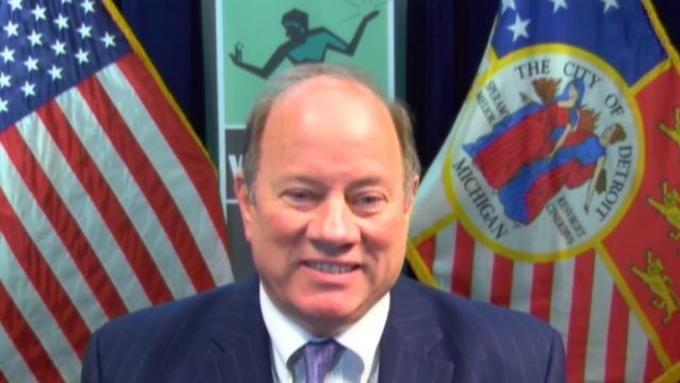 Mayor Dee Margo of El Paso, Texas and Mayor Mike Duggan of Detroit, Michigan both made the point that mask mandates and adhering to local guidance is not only imperative, but common sense in combating the surge of the coronavirus pandemic. What we asked: What's driving the infections and what do you expect to see over the next few weeks? What the mayors said: "...The commitment to the testing, the commitment to the masks has shown that you can dramatically drop the infection rate," said Mayor Duggan. "I think people just- the- the consensus is people just had COVID fatigue and they let down, as Dr. Birx said, you got to wear the mask and you've got to maintain the distancing and you've got to avoid the crowds," Mayor Margo said as COVID cases skyrocket in his region. Why it matters: Wearing a mask isn't just good common courtesy, it can save lives. 3. Gottlieb on updated CDC quarantine guidance 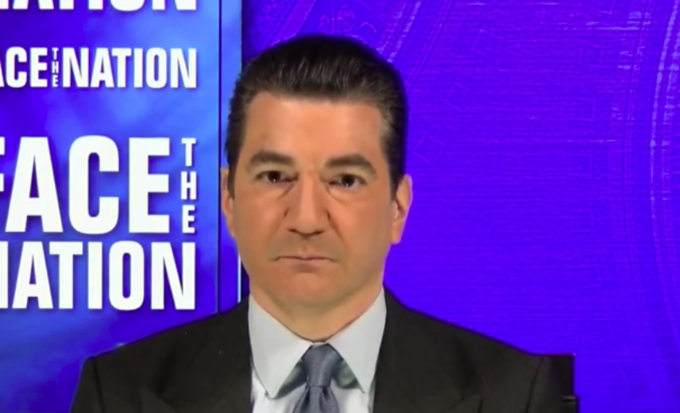 Dr. Scott Gottlieb, former commissioner of the Food and Drug Administration, said a shortened recommended quarantine period under consideration by the Centers for Disease Control and Prevention (CDC) should capture the "vast majority" of coronavirus infections. What we asked: The CDC is considering shortening the amount of recommended time for a quarantine. What does that accomplish? What Gottlieb said: "What you want are recommendations that are prudent and practical that people are going to follow. And when you have a 14-day quarantine period, that's such a long period of time that a lot of people aren't going to follow that anyway, and it makes it difficult to adhere to recommendations. So putting in place a 10-day quarantine period, even a seven-day quarantine period, you're going to capture the vast majority of infections within that time frame." Why it matters: Under current guidelines, the CDC recommends people quarantine for 14 days after their last contact with a person who has COVID-19. But the health agency is considering shortening that time period. Admiral Brett Giroir, assistant secretary for health at the Department of Health and Human Services, told reporters Tuesday there is a "preponderance of evidence that a shorter quarantine complemented by a test might be able to shorten that quarantine period." 4. An exacerbated crisis: Hunger grips much of the globe, U.S. 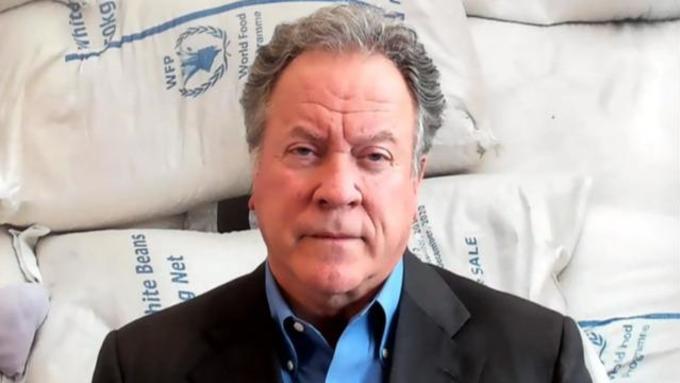 The coronavirus pandemic has stretched millions of Americans thin in more ways than imaginable. The most troubling among them is the U.S. and global hunger crisis as over 50 million Americans are considered food insecure. That's on top of the 270 million people around the world are that on the precipice of starvation. We spoke with Feeding America's Claire Babineaux-Fontenot and World Food Programme's David Beasley for more. What we asked: Where are you seeing the most need? What Babineaux-Fontenot said: "There are actually communities in which one in two children face food insecurity. What we're seeing is the things that you might imagine. So, communities of color are particularly vulnerable. They're two times more likely to suffer with food insecurity. Also, rural communities are far more likely to suffer with food insecurity as well. So, it's definitely not evenly spread, but on average, about one in six people in this country food insecure." What Beasley said: "There's about 36 countries now that we feed 30 million people that they depend on us 100 percent. We assist about 100 million people on any given day, week or month right now around the world, we need to move that number up to about 138 million. But there are three dozen countries, and you talk about specifically, let me just hit a few, Yemen, Syria, South Sudan, Northeast Nigeria, DRC, and I could keep going from country to country to country around the world." Why it matters: Both directors stressed the need for support during an already hard time for the U.S. and global communities. The coronavirus pandemic has only worsened a devastating food crisis, more than doubling the need for food banks, drives and donations to such organizations. As Beasley put it: "This is not people going to bed hungry. This is people struggling to get their next meal." 5. Here's how YOU can help 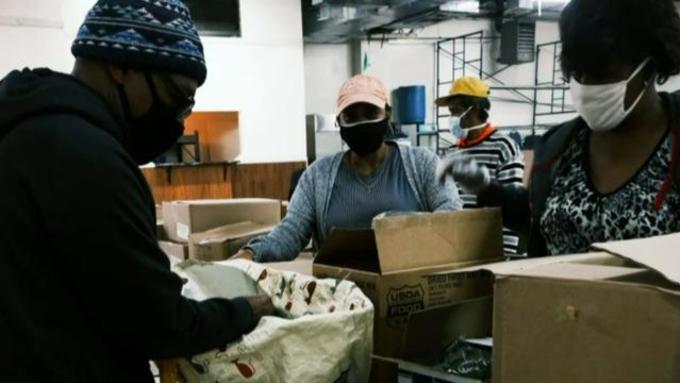 While the Thanksgiving holiday is behind us, the need to help your fellow neighbor is still as prevalent as ever. Particularly during the global health pandemic, we wanted to share some resources we think could help as you give thanks this holiday season.
|
No comments:
Post a Comment